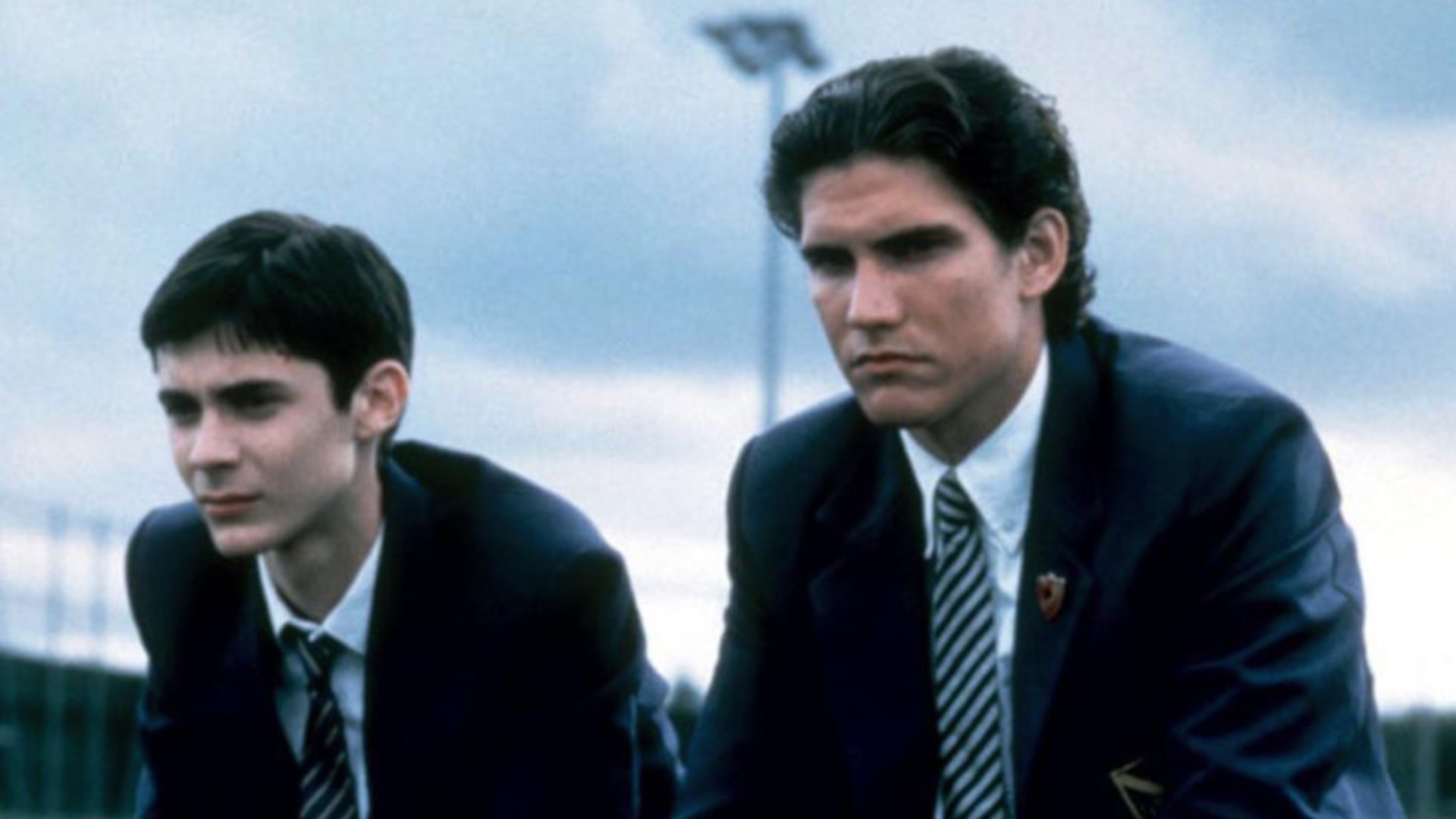Beyond Brokeback: 13 LGBTQ British film recommendations, from hidden gems to treasured triumphs
To mark Attitude’s 30th anniversary, film reviewer Guy Lodge shares some of the best moments from the past three decades of LGBTQ+ cinema
By Guy Lodge

There was a time when truly queer cinema in Britain was largely confined to the fringes. For many of us, our formative memories of seeing LGBTQ+ lives represented on screen came via such polite gay romances as Merchant Ivory’s Maurice, or as subplots in the straight-led likes of Four Weddings and a Funeral. (The wild queer dream worlds of Derek Jarman were a revelation to those who dared.)
But the past 30 years have been a transformative era for queer filmmaking, incorporating an ever-expanding range of experiences and perspectives into a mainstream spotlight.
Meanwhile, what was once a branch of cinema largely confined to the white-male end of the spectrum is diversifying all the while — a work in progress still, but excitingly in flux. Here are the highlights of the past 30 years in queer cinema.
Priest (1994)
Written by TV legend Jimmy McGovern, Antonia Bird’s frank drama about a closeted Catholic priest undergoing a crisis of faith got a lot of people hot under the (dog) collar 30 years ago, and it still packs a punch today. The Catholic League branded it “blasphemous smut”, so you know it’s good.
Stonewall (1995)
Shortly before his death from AIDS, British director Nigel Finch completed this vibrant dramatisation of the 1969 Stonewall riots. In what was then an innovative flourish, it weaves documentary interview footage with original Stonewall participants and witnesses amid an entertaining fictional ode to queer community and empowerment.
Hollow Reed (1996)
Angela Pope’s solemn custody-battle melodrama might strike contemporary viewers as a little schematic, but there’s still a lot of power to its then-revelatory tale of a gay father battling a system rigged against him to rescue his son from an abusive straight stepdad — it was a landmark in its plea for queer parental recognition.
Beautiful Thing (1996)
The teen romcom that launched countless adolescent crushes and self-realisations still holds up beautifully today, bringing as it does a welcome working-class point of view to the coming-out narrative. You’ll never again hear ‘Dream a Little Dream of Me’ without a lump in your throat.
Bent (1997)
This once-controversial tale of two gay men (Clive Owen and Lothaire Bluteau) falling in love while imprisoned in a Nazi concentration camp hasn’t aged entirely well — the drama can be heavy-handed, while a cross-dressing Mick Jagger is a gimmicky distraction — but it’s a fascinating provocation.
Love and Death on Long Island (1997)
John Hurt is a joy in Richard Kwietniowski’s spry comedy, playing a tweedy writer who becomes so obsessed with a young, dumb and unfortunately straight teen-movie idol (Jason Priestley — remember him?) that he sets out to meet and turn him. It’s more poignant than that makes it sound.
Wilde (1997)
Stephen Fry was born to play Oscar Wilde. His brash, bright performance livens up the frilly costume-drama trappings of Brian Gilbert’s handsome biopic, which centres on the writer’s dangerous infatuation with hedonistic poet Bosie Douglas — magnetically played by Jude Law as a toxic twink you’d gladly ruin your life for.
Get Real (1998)
Sassier though ultimately less fondly remembered than Beautiful Thing, this coming-of-age comedy about a 16-year-old dork who finds his crush on the seemingly straight school jock unexpectedly reciprocated still charms with its snarky humour, peppy pop soundtrack and ultimate message of self-worth over puppy love.
Love is the Devil (1998)
Years before he was James Bond, Daniel Craig was a volatile, white-hot object of desire in John Maybury’s striking biopic of painter Francis Bacon, played by Derek Jacobi. Detailing Bacon’s destructive relationship with Craig’s criminal-turned-muse, it effectively conjures the artist’s distinctly queer gaze.
My Summer of Love (2004)
Polish director Pawel Pawlikowski won a BAFTA for this perceptive, atmospheric romance between two teenage girls from opposite social backgrounds. It’s the film that launched Emily Blunt, who plays a rebellious public schoolgirl, to stardom, but Natalie Press is exquisite as the underprivileged loner in thrall to her.
Weekend (2011)
A one-night stand turns into a deeper connection — but as life pulls two new lovers in different directions, can it last past the weekend? With its acutely soul-baring dialogue and intensely intimate sex scenes, Andrew Haigh’s breakout film became an era-defining queer text, uniting many a lonely soul over its onscreen heartache.
My Brother the Devil (2012)
Sally El Hosaini and James Krishna Floyd recently collaborated on the drag romance Unicorns, but this thoughtful, tough-minded drama put them on the map. Floyd gives a complex performance as a British-Egyptian man caught between the lure of east London thug life and a secret gay romance that catches him off-guard.
Stud Life (2012)
This energetic debut from Black trans writer-director Campbell X signalled the broadening diversity of the British queer film scene. Following the separate romantic travails of Black butch lesbian photographer JJ and her gay white best friend Seb, it’s a rousing celebration of intersectional queer identity.
